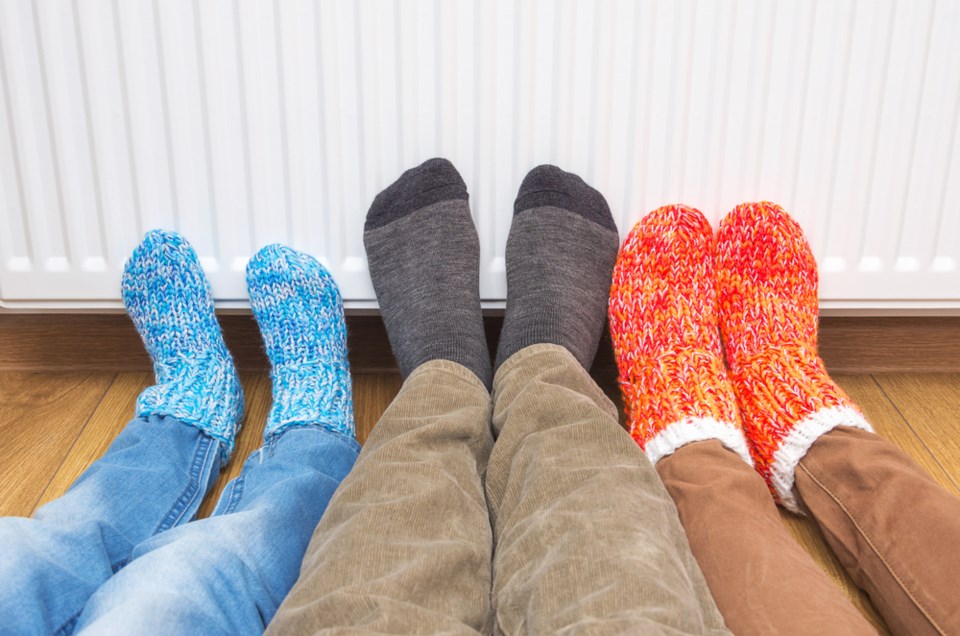Baby, it’s cold outside — but if you turn up the heat, you could be adding big bucks to your electricity bills.
At least that’s the worry of BC Hydro, which is advising residents who heat their homes with electric baseboard heaters to be careful of setting the temperature too high.
“We're just reminding customers there are simple ways to reduce electricity use in the winter,” said BC Hydro spokesperson Susie Rieder.
The cautions come as BC Hydro reports it has set a record for the highest peak hourly demand for electricity. The record was reached Monday, Jan. 13 when consumption reached 10,302 megawatts. The previous record was set Jan. 3, 2017, when electricity peaked at 10,194 megawatts.
With below-freezing temperatures and more snow expected over the coming days, the demand for electricity is expected to remain high, and BC Hydro is expecting peak loads between 9,800 and 10,600 megawatts.
Monday’s peak load is 16% higher than the previous week, according to BC Hydro. which records the highest demand for electricity on weekday evenings when British Columbians come home, turn up the heat, switch on the lights, do laundry and make dinner.
Residential electricity can increase, on average, by 88% in the colder, darker, winter months, resulting in higher heating costs.
Rieder, who lives in a townhouse heated with electric baseboards, said she takes care to lower the thermostat when she is out of the house but increases the temperature when she is at home watching TV. She recommends people take a closer look at their electricity usage by using the MyHydro app. “You can see the patterns and adjust,” Rieder said.
According to BC Hydro, the ideal temperatures are as follows: 16 C when sleeping or away from home, 21 C when relaxing or watching TV and 18 C when doing housework and cleaning.
Cranking up the thermostat is not ideal because it doesn’t heat the home any faster than turning it up a degree or two at a time.
Other suggestions include draft-proofing around windows and doors to reduce heat loss by 10% and using a programmable thermostat.
While changing the heat levels to match activity does seem like a good idea, many Canadian couples fight over the thermostat, according to a 2018 survey.
A Canada-wide survey by Research Co. found 30% of Canadians change the thermostat without telling their spouse or partner — with 35% of women more likely to change the settings without warning, compared to 25% of men.
Read more from the Tri-City News




